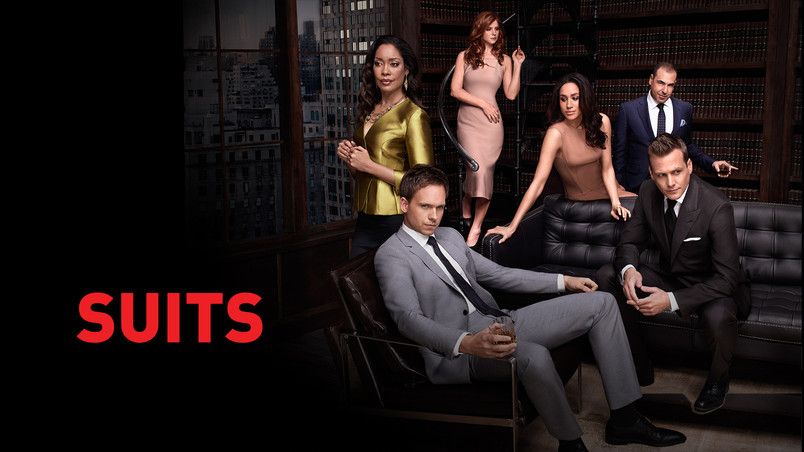Suits unexpectedly became a streaming sensation in 2023, despite concluding its nine-season run in 2019. This resurgence invites a closer look at the show’s evolution, which reflects broader cultural shifts over the past decade.
“This unexpected comeback highlights the enduring appeal of Suits, suggesting its themes continue to resonate with audiences even years later,” Senior Mariana Gomez said.
Seasons one through four present a high-powered New York law firm, Pearson Specter, where morality takes a backseat to success. The charismatic Harvey Specter and his “prodigy,” Mike Ross (a college dropout with an eidetic memory posing as a lawyer), navigate shady corporate cases with wit and dubious tactics.
“The Harvey and Mike bromance is everything. From witty banter to epic fist bumps, they’re best friend goals. Who wouldn’t want a partner-in-crime who’s also your legal mentor,” Senior Mara Montoya said.
The show thrives on this absurdist premise, milking the tension between Mike’s genuine passion for law and his blatant lie. Each episode brings a new legal hurdle, solved through elaborate manipulations and disregard for established rules. While entertaining, this “morality schematics” approach doesn’t demand serious engagement.
“The show’s initial seasons reflected a cultural landscape where success often trumped morality, a dynamic that’s become increasingly questioned in later years,” Senior Tomas Villegas said.
However, season five ushers in a tonal shift. As Harvey seeks therapy and Mike faces prosecution for fraud, the show confronts the consequences of their actions. The line between confident gamesmanship and blatant wrongdoing blurs.
Interestingly, Suits becomes an unwitting metaphor for our current epistemic crisis. Characters like Mike, initially playing with truth as a joke, become trapped in a self-constructed reality, similar to how some deny facts like climate change or election results.
“Mike’s journey raises important questions about responsibility and personal accountability, even when shrouded in charisma and good intentions,” Montoya said.
The writers seem to acknowledge this, making Mike’s frantic attempts to bend the truth eerily reminiscent of certain real-world figures. However, despite hinting at consequences, the show ultimately lets Harvey and Mike off the hook, perpetuating the idea that “vibes” matter more than truth.
Season seven marks a dramatic shift. Seemingly influenced by the 2016 election, the writers embark on a redemption arc for all characters. Mike becomes a pro-bono lawyer, Louis sheds his negativity, and even Donna gets ambitions beyond serving Harvey. The show actively tries to be feminist and socially conscious, but the suddenness feels like a retcon.
“Suits underwent a dramatic transformation, shifting from amoral gamesmanship to a quest for redemption, mirroring societal conversations about personal and social responsibility,” Villegas said.
While Mike’s departure in the finale allows a return to corporate battles, Suits never fully reverts to its earlier amorality. It becomes self-aware, acknowledging the previous seasons’ problematic aspects and offering a correction.
“Mike Ross is basically me if I wasn’t, you know, stuck in this lame AP Chemistry class. Photographic memory? Check. Street smarts? Check. Lawyering without a license? Maybe not but hey, gotta admire the hustle,” Gomez said.
Suits’ journey reveals a show shaped by its times. Early seasons mirror an era of nihilistic entertainment, while later seasons attempt to grapple with societal shifts and changing values. Ultimately, the show’s unexpected popularity in 2023 invites us to re-examine its themes and how they resonate with current cultural anxieties.
“Whether you admire their hustle or question their ethics, Harvey and Mike remain unforgettable characters, prompting us to consider the complex interplay between ambition, truth, and consequences,” Villegas said.



